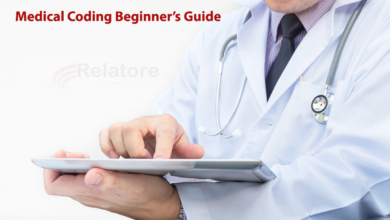How to Manage Healthcare Data Securely: Essential Tips
Secure healthcare data with essential tips on encryption, audits, and access controls to protect patient information and maintain privacy.

Securing healthcare data management is more important than ever in the current digital era. Healthcare providers now place a high premium on protecting patient privacy and security due to the growing reliance on electronic health records (EHRs) and other digital health systems. The healthcare sector has particular difficulties in preventing breaches, cyberattacks, and unwanted access to sensitive data. Sustaining patient confidence and meeting strict regulatory obligations necessitates the implementation of strong security measures.
A thorough policy, ongoing staff training, and cutting-edge technology are all necessary for efficient healthcare data administration. Healthcare companies may drastically lower their risk of data breaches by using best practices including encryption, frequent audits, and access limits. Furthermore, encouraging a culture of security awareness among employees helps guarantee that everyone is aware of the significance of protecting patient information and assist minimise unintentional data leaks. Keeping up with the most recent security developments and technology is essential for preserving the confidentiality and integrity of healthcare data as the industry continues to change.
How to Manage Healthcare Data Securely
Understanding Healthcare Data
Healthcare data encompasses a wide range of information, including patient records, medical histories, lab results, and billing information. This data is highly sensitive and valuable, making it a prime target for cybercriminals. Examples of sensitive healthcare information include social security numbers, insurance details, and medical diagnoses.
Legal and Regulatory Requirements
Ensuring the security of healthcare data involves adhering to various legal and regulatory requirements. In the United States, the Health Insurance Portability and Accountability Act (HIPAA) sets the standard for protecting sensitive patient information. Additionally, the General Data Protection Regulation (GDPR) impacts how healthcare data is managed, especially for organizations operating within the European Union. Other regulations, such as the Health Information Technology for Economic and Clinical Health (HITECH) Act, also play a role in shaping healthcare data security practices.
Common Threats to Healthcare Data
Healthcare data faces numerous threats, including cyberattacks, insider threats, and physical theft. Cyberattacks, such as ransomware and phishing, can lead to data breaches that compromise patient information. Insider threats, whether malicious or accidental, pose significant risks as well. Physical theft or loss of devices containing healthcare data can also result in unauthorized access to sensitive information.
Best Practices for Managing Healthcare Data Securely
Data Encryption
Encryption is crucial for protecting healthcare data both in transit and at rest. By converting data into a secure format, encryption ensures that only authorized parties can access it. Common encryption methods include Advanced Encryption Standard (AES) and Rivest-Shamir-Adleman (RSA) algorithms.
Access Control
Implementing robust access control measures is essential for limiting data access to authorized personnel only. Role-based access control (RBAC) assigns access permissions based on an employee’s role within the organization. Additionally, enforcing strong password policies, such as requiring complex passwords and regular updates, can prevent unauthorized access.
Regular Audits and Monitoring
Conducting regular security audits and continuous monitoring of data access are vital for identifying and addressing potential vulnerabilities. Security audits assess the effectiveness of existing security measures, while monitoring helps detect any suspicious activities in real-time.
Using Advanced Security Technologies
Adopting advanced security technologies can enhance healthcare data security. Artificial intelligence (AI) can detect anomalies and potential threats, while multi-factor authentication (MFA) adds an extra layer of protection. Blockchain technology, with its decentralized and immutable nature, can also provide secure and transparent data management.
Implementing Secure Data Storage Solutions
Healthcare organizations must choose secure data storage solutions to protect sensitive information. On-premises storage offers control over physical security, but cloud storage provides scalability and advanced security features. Regardless of the storage method, implementing secure data backup strategies is crucial for data recovery in case of a breach.
Employee Training and Awareness
Human error is a significant factor in data breaches, making employee training and awareness essential. Regular cybersecurity training programs educate staff on best practices for data security, such as recognizing phishing attempts and handling sensitive information securely. Fostering a culture of security ensures that employees remain vigilant and proactive in protecting healthcare data.
Developing an Incident Response Plan
An effective incident response plan is crucial for minimizing the impact of data breaches. This plan should outline the steps to take in the event of a security incident, including identifying the breach, containing it, and notifying affected parties. Regular testing and updating of the response plan ensure that it remains effective and relevant.
Ensuring Data Integrity and Accuracy
Maintaining the integrity and accuracy of healthcare data is vital for patient care and regulatory compliance. Implementing data validation techniques, such as checksums and data verification processes, can help ensure that the data remains accurate and unaltered. Regularly updating and verifying data further enhances its reliability.
Third-Party Vendor Management
Healthcare organizations often work with third-party vendors for various services, making it essential to assess their security practices. Creating secure vendor agreements and regularly reviewing vendor compliance with security standards can mitigate risks associated with third-party data handling.
Patient Education and Involvement
Educating patients about data security and involving them in protection efforts can enhance overall security. Providing patients with information on how to protect their personal information and encouraging them to use secure communication channels can reduce the risk of data breaches.
The Future of Healthcare Data Security
The landscape of healthcare data security is continually evolving, with new technologies and challenges emerging. Trends such as AI-driven security solutions, biometric authentication, and advancements in encryption methods are expected to shape the future of healthcare data security. Staying informed about these developments can help organizations proactively address potential threats.
Read More: Finding the Best Personal Injury Lawyers: Top 10 Picks
Conclusion
In addition to being required by law, securely maintaining healthcare data is essential to patient care and confidence. Sensitive patient data must be protected from potential risks by putting in place comprehensive security measures such data encryption, frequent security audits, and strict access limits. Healthcare companies need to be cautious and watchful at all times, updating their security procedures often to stay ahead of the always changing cyber threat scenario. Healthcare providers may guarantee the availability, confidentiality, and integrity of patient information by placing a high priority on data security.
Moreover, it is imperative to cultivate a culture of security within the organisation. Frequent staff awareness and training campaigns can greatly lower the possibility of human mistake, which frequently plays a big role in data breaches. A more robust and secure healthcare environment can be achieved by encouraging a shared responsibility for data security among all personnel. Healthcare organisations will be better able to manage their data and safeguard patient privacy as long as they keep up with the current security trends and best practices.
FAQs
What are the key steps to secure healthcare data?
Key steps include encrypting data, conducting regular security audits, implementing strong access controls, training staff on data security, and staying updated on the latest security trends.
Why is encryption important for healthcare data?
Encryption ensures that data is unreadable to unauthorized users, protecting sensitive patient information from breaches and cyber-attacks.
How often should healthcare organizations conduct security audits?
Regular security audits should be conducted at least annually, but more frequent audits may be necessary depending on the organization’s size and complexity.
What role does employee training play in data security?
Employee training is crucial as it reduces the risk of human error, which is a common cause of data breaches, and ensures staff understand the importance of safeguarding patient information.
How can healthcare organizations stay updated on security trends?
Organizations can stay updated by subscribing to industry newsletters, attending cybersecurity conferences, and participating in professional networks and forums.












One Comment